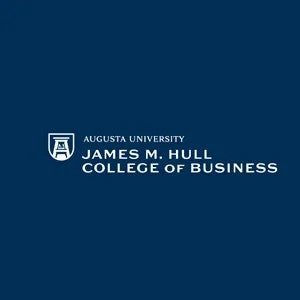Metro Augusta will have roughly 1,300 new job openings within the next 18 to 36 months. That’s based on recent economic development announcements in Richmond and Burke Counties in Georgia and Aiken County in South Carolina.
Some, including Meta in the Sage Mill Industrial Park, GF Casting Solutions in the Augusta Corporate Park, and TMC Transformers in the Burke County Industrial Park, plan to build new facilities for the approximately 500 employees the three of them will hire.
“All of them have construction-related jobs,” Cal Wray, President of the Augusta Economic Development Authority, told ABD. “For example, Aurubis. Aurubis has 400-500 ongoing construction jobs for their phase two.”
Wray, Will Williams, President and CEO of Western SC Economic Development Partnership, and Austin Stacy, Executive Director of the Development Authority of Burke County (DABC) all agree the 1,300 permanent jobs will mean thousands of job openings in all building trades for the construction phase of each new project and expansions already underway at companies like Standard Aero.
“Every contractor I know, they need people. If they have the right people with the right skill sets, these people can almost demand their hourly compensation,” said Wray.

Speaking for Local 1579 of the International Brotherhood of Electrical Workers (IBEW), J.R. Richardson, the Business Manager and Financial Secretary, said they are coming up short.
“I need more. I’m not going to have enough for this area,” he said. “A lot of these jobs that we’re fixing to have, and the current ones that we do have, we’re going to be bringing in travelers from different areas to come help us.”
Augusta Business Daily was invited to sit in at a recent roundtable meeting of leaders of the Augusta Building Trades Council, representing union members across all disciplines.

Jeff Britt, Business Manager for the Union of Operating Engineers International, said they are trying to find new members to begin training for the jobs being created.
“We’ve got job fairs that we go to with the technical schools and the high schools,” he said. “All the trades sitting here today, they can tell you that work’s booming right now.”
So much so, Augusta Technical College is beginning a new program specifically aimed at quickly getting individuals trained for construction jobs.
“Essentially, what we heard from industry was they wanted us to teach the short-term programs like carpentry, masonry, and plumbing, which are basically one month or less, and giving people the requisite skill sets for them to be safe on the job and have the basic skill sets that they need to go out and do this work. From there, once they get about 30 days of training, then GoldMech or RW Allen, they would hire those individuals and then do the rest on the job training.”

Augusta Tech has a satellite campus in Waynesboro. Stacy said the relationship with the college is a selling tool when they meet with potential employers.
“We’re talking with the companies during the recruitment process of what certifications you need your employees to have. What type of training do they need? A certificate or a degree,” he said. “Then we go to Tech and say, ‘Hey, do y’all provide this? Can you provide this?’ And we’ve been able to land these deals because we have that partnership, because these companies know that when they get here, the programs are in place.”
Aiken Technical College set up a similar program at the request of the Savannah River Site. It is currently hiring for projects, including modifying the facility for the failed Mixed Oxide (MOX) project to begin Pit production. The pre-apprenticeship program was a partnership between the college and more than a dozen local building trades unions.
While the local unions are concerned about being able to supply enough trained workers, there is another issue, persuading contractors and construction companies to hire union workers.
“It’s a huge impact if they were union labor,” said Britt. “That’s the biggest thing. They’ve got nonunion contractors just working it. Some of us get some of the work, some of us don’t. If we could get 20% of the work, or 10% of the work we go after all of it and try to get as much as we can. But if they can work nonunion, they’re working nonunion.”

He said contractors with union members are at a disadvantage when bidding against a nonunion contractor. Union members have higher wages, and the union also must cover the cost of medical and retirement benefits. He said they have started reaching out to local contractors, trying to find a more level playing field.
One thing everyone we spoke to agrees on is, that from the first day of site preparation to the ribbon-cutting ceremony on completion, Metro Augusta is on the threshold of a major construction boom. However, at the moment there aren’t enough people trained to fill the positions that will be created.






